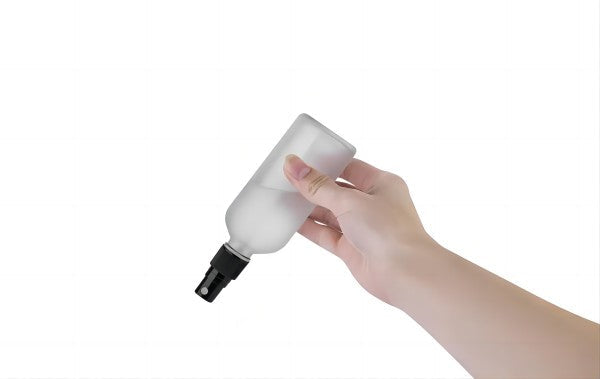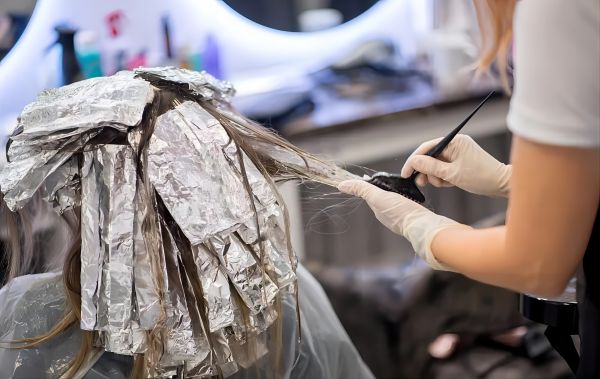Today, let's dive into one of the most buzzed-about natural remedies for hair care: apple cider vinegar (ACV). You've probably heard whispers about its benefits, but let's break it down and see why it's got everyone talking.
1. Benefits of Apple Cider Vinegar for Hair Health
Apple cider vinegar (ACV) has gained popularity in hair care for its numerous benefits. It balances the scalp’s pH, reducing itchiness and dandruff, and acts as a natural detangler, making hair easier to comb through. Its acetic acid content helps clarify the scalp by removing buildup from products and hard water minerals. ACV also smooths the hair cuticle, enhancing shine and reducing frizz. Furthermore, its antimicrobial properties help prevent scalp infections and promote overall scalp health. By sealing the hair cuticle, ACV can reduce split ends and improve hair elasticity, making strands stronger and less prone to breakage.
2. The Science Behind Apple Cider Vinegar's Effectiveness for Hair Care
Understanding the science behind ACV’s benefits can demystify its popularity. ACV’s acetic acid content lowers the scalp’s pH, creating an environment less conducive to dandruff-causing yeast. Its antimicrobial properties combat bacteria and fungi that can cause scalp infections. The clarifying action of acetic acid removes buildup, allowing hair to breathe and absorb nutrients more effectively. Additionally, the vitamins and minerals in ACV, such as B vitamins, vitamin C, and potassium, nourish the hair and scalp. Scientific studies and dermatological insights support these benefits, making ACV a scientifically backed natural remedy for hair care.
3. How to Make an Apple Cider Vinegar Hair Rinse
Making an ACV hair rinse is simple and cost-effective. Start with a good quality, unfiltered, and organic apple cider vinegar. Mix 1 part ACV with 3 parts water in a spray bottle or jar. After shampooing, pour or spray the mixture onto your scalp and hair, ensuring even distribution. Let it sit for a few minutes to allow the vinegar to work its magic. Then, rinse thoroughly with cool water. For those with sensitive scalps, increasing the water ratio can reduce the vinegar’s intensity. Regular use can help maintain a healthy scalp and improve hair texture.
4. How Often Should You Use Apple Cider Vinegar on Your Hair?
The frequency of ACV use depends on individual hair needs and types. For oily hair, using an ACV rinse 1-2 times a week can help control excess oil. Those with dry or sensitive scalps should limit use to once every two weeks to avoid over-drying. For normal hair, a weekly rinse can maintain balance and shine. Observing how your hair responds is crucial; if you notice increased dryness or irritation, reduce the frequency.
5. Apple Cider Vinegar vs. Traditional Shampoo: Which is Better?
Comparing ACV to traditional shampoos reveals distinct advantages and drawbacks. Traditional shampoos often contain sulfates and parabens, which can strip natural oils and cause dryness. In contrast, ACV is a natural cleanser that maintains the scalp’s pH and doesn’t strip essential oils. However, shampoos offer convenience and are formulated for specific hair concerns like dandruff or color protection. While ACV provides a natural alternative, it may not be suitable for everyone, especially those with extremely dry or sensitive scalps. Combining both can offer a balanced approach to hair care.
6. Common Mistakes to Avoid When Using Apple Cider Vinegar for Hair
Proper use of ACV is crucial to avoid potential pitfalls. One common mistake is using undiluted ACV, which can cause scalp irritation and dryness due to its high acidity. Overuse is another issue; applying ACV too frequently can disrupt the scalp’s natural balance. It's also important to thoroughly rinse out ACV to prevent lingering smell or residue. Using ACV on color-treated hair requires caution, as its acidic nature can strip color. Testing a small area before full application can help avoid adverse reactions. Awareness of these mistakes ensures safe and effective use of ACV.
7. Apple Cider Vinegar for Hair Growth: Fact or Fiction?
The idea that ACV promotes hair growth has both supporters and skeptics. ACV’s ability to improve scalp health by balancing pH and removing buildup can create an optimal environment for hair growth. Its antimicrobial properties prevent infections that could impede growth. However, there's limited scientific evidence directly linking ACV to increased hair growth. While ACV can enhance scalp health, factors like genetics, diet, and overall hair care routine play more significant roles in hair growth. It’s a supportive, rather than a primary, treatment for promoting hair growth.
8. Tips for Choosing the Right Apple Cider Vinegar for Hair Care
Not all ACV products are created equal. For hair care, it's best to choose raw, unfiltered, and organic ACV. Raw ACV contains "the mother," a mix of enzymes, proteins, and beneficial bacteria that enhance its health benefits. Unfiltered ACV retains more of these nutrients compared to filtered versions. Organic ACV ensures that the product is free from harmful pesticides and chemicals. Reading labels and opting for high-quality brands can make a significant difference in the effectiveness of ACV treatments. Proper storage, away from direct sunlight, also helps maintain its potency.





